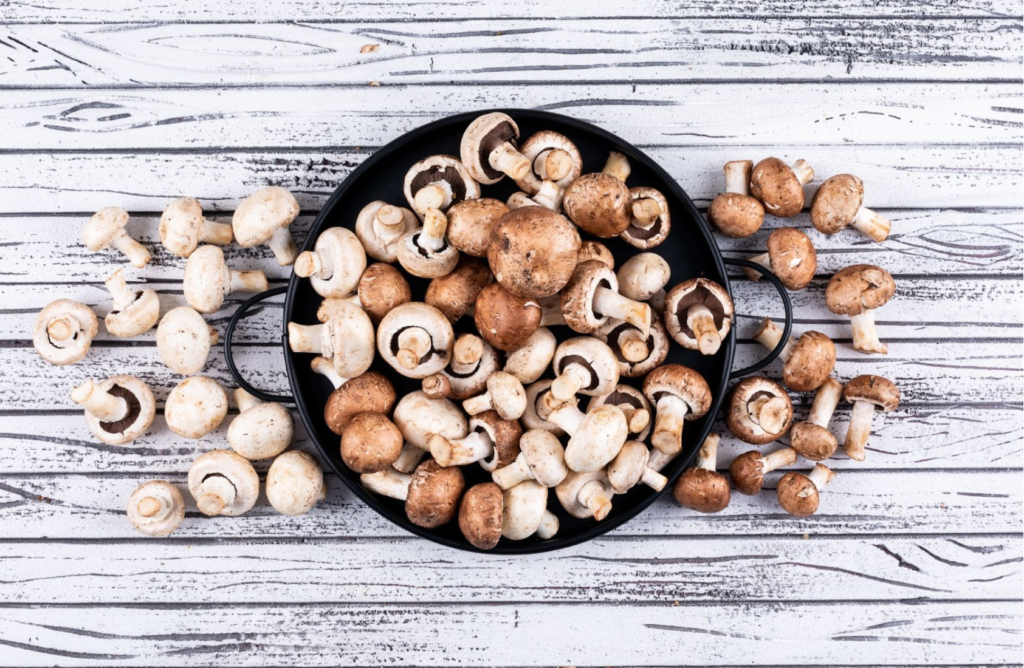
9 Delicious Ways to Brew the Perfect Cup of MannaBrew
MannaBrew is rapidly becoming a popular alternative for those who want to enjoy the rich, full-bodied experience of coffee without the caffeine that often comes with it. Made from nutrient-packed

In health and wellness circles, mushroom supplements are gaining traction. They range from Chaga to Cordyceps.
However, just like any other health supplement, they should be taken with caution.
This article explains what you should avoid when adding mushroom supplements to your health routine.
Our focus here is straightforward: to guide you on the dos and don’ts while using these supplements.
Our discussion will include possible interactions between foods and medicines, plus lifestyle choices that can affect their effectiveness.
Let’s get started on this journey to smart and safe supplementing.
Enhance your health wellness with our mushroom supplements – Click here to discover how they can complement your wellness routine.
Mushroom supplements are concentrated forms of various beneficial mushrooms.
They come in different forms like extracts, oils, powders, and teas.
These supplements make it easy to include the benefits of mushrooms in your daily health routine.
Here are some types of mushrooms in supplements:
Moreover, the benefits of mushroom supplements are also diverse:
Remember, mushroom supplements are not cure-alls, but are excellent additions to a healthy lifestyle.
They offer a natural way to support your body’s well-being.
If you’re considering trying them out, you’re on a promising path to naturally boosting your health.
When you’re considering mushroom supplements, it’s important to understand how they might interact with certain medications.
Here’s a list of some common medication types where caution is advised:
Supplements like Reishi have properties that could potentially affect blood clotting.
For those on blood thinners, this could lead to an increased risk of bleeding.
Some mushroom supplements might influence blood sugar levels.
This is particularly important for individuals using diabetes medications, as it could lead to fluctuations in blood sugar control.
Since many mushroom supplements are known for bolstering the immune system, they might counteract the effects of immune-suppressing drugs, influencing their efficacy.
Certain types of mushroom supplements might interact with chemotherapy treatments.
They could either potentiate or weaken the effects of these drugs, which is crucial for treatment effectiveness.
Supplements like Reishi can also have blood pressure-lowering effects.
This could potentially cause an additive effect with antihypertensive drugs, leading to excessively low blood pressure.
Similar to blood thinners, anticoagulants can be affected by the blood-modifying properties of some mushroom supplements, which might increase the risk of bleeding.
It’s important to consult a healthcare provider before starting mushroom supplements, especially if you’re on prescribed medications.
Your doctor can guide you on whether these supplements are suitable for you and advise on any necessary dosage adjustments or monitoring.
Remember, safety first when combining supplements with medications.
To maximise the benefits of mushroom supplements, it’s important to be aware of certain foods that might interfere with their effectiveness or lead to unwanted reactions.
Here are some food types to be mindful of:
Foods and drinks high in caffeine, like coffee, energy drinks, and some teas, can affect how your body absorbs mushroom supplements.
If you’re taking supplements in the morning, consider limiting caffeine to ensure optimal nutrient absorption.
Highly processed foods, often loaded with additives and preservatives, can disrupt your digestive system.
This may hinder the absorption of the beneficial compounds in mushroom supplements.
Choosing whole, minimally processed foods can help ensure your body gets the most from these supplements.
Some herbs, such as garlic, ginger, and ginseng, have properties that might amplify the blood-thinning effects of some mushroom supplements.
While generally healthy, these herbs should be consumed in moderation when using supplements that affect blood clotting.
Alcohol can impact the liver, which is crucial for metabolising supplements.
Regular alcohol consumption may alter the effectiveness of mushroom supplements, so it’s best to limit alcohol intake while using these products.
High-sugar foods can cause fluctuations in blood sugar levels, which might interfere with the body’s response to certain mushroom supplements, especially those that affect blood sugar regulation.
It’s always wise to consume a balanced diet while taking any supplement.
What you eat can significantly impact how well supplements work in your body.
When getting the most out of mushroom supplements, your lifestyle choices play a significant role.
Here’s a look at some key factors that can influence their effectiveness:
By paying attention to these lifestyle factors, you can optimise the benefits of mushroom supplements.
A healthy lifestyle, such as moderate alcohol consumption, quitting smoking, managing fatigue, and getting quality sleep, complements the effectiveness of these supplements, helping you achieve your wellness goals.
Before you start taking mushroom supplements, preparing your body can significantly impact how you benefit from them.
Here are some tips to get your body ready:
In preparing your body in this way, you’ll allow mushroom supplements to work effectively.
Remember, supplements are most effective when they’re part of a healthy lifestyle.
Mushroom supplements like Chaga and Cordyceps offer various health benefits, but it’s essential to be aware of their interactions with certain medications and foods.
The impact of your lifestyle choices, including diet and alcohol consumption, is also crucial in determining the effectiveness of these supplements.
The most important step before starting any new supplement, including mushroom supplements, is consulting a healthcare professional.
They can provide guidance tailored to your unique health needs and current medication regimen.
As you consider adding mushroom supplements to your wellness routine, always consider the bigger picture of your overall health.
Being mindful and informed about your health choices leads to a more balanced and beneficial approach to wellness.
Experience wellness with our quality mushroom supplements – Click here to start your harmonious health journey.

MannaBrew is rapidly becoming a popular alternative for those who want to enjoy the rich, full-bodied experience of coffee without the caffeine that often comes with it. Made from nutrient-packed

Choosing organic foods is not just about keeping up with a trend; it’s a deliberate and informed decision prioritising your health and overall well-being. Organic foods are cultivated without synthetic

Making cookies at home is a fun and rewarding activity and an opportunity to take control of the ingredients and flavours in your treats. By choosing cacao over processed cocoa,
© 2024 All Rights Reserved.